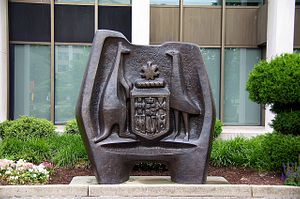It is easy to make fun of tourists. Mark Twain did it over a century and a half ago in his Innocents Abroad and P. J. O’Rourke had fun in the 1980s with persnickety members of the aging American left during a cruise through Soviet Russia. However, for Australia’s usually dour Department of Foreign Affairs and Trade, or DFAT, to do so is unexpected.
Along with a new warning to Aussie travelers DFAT also ran its top twenty “dumb” queries received by its consulates. They read rather like a list of TripAdvisor complaints from people who have seemingly confused consulate with concierge. The full list can be seen here but a few of the best include number five, “Multiple enquiries to embassies overseas seeking the closest pub televising State of Origin games” and number 14, “I’m going on a cruise. What will the food be like? Can you drink the water on the ship?”
The government will no longer be putting up with “serial pests” says Foreign Minister Julie Bishop. She told reporters that though assistance is a “core function” of the consulates, “Consular assistance should not be seen as a right, it is a privilege and the government is not a back up insurance policy.” Travel insurance is the better policy, suggests Bishop.
Aussies are seemingly getting into more trouble overseas as more of them travel, and at a younger age.
A television show premiered on Channel 9 in October called The Embassy, which shows what happens to Australians in trouble in Thailand. Bangkok, Bali and Los Angeles receive the most calls for assistance. First Secretary Trudy MacGowan told reporters, “The top reasons Australians seek out the embassy are probably to get married because they’ve found the love of their life and they need us to sign off on a piece of paper so they can marry a Thai national.” But lost passports, destitution, accidents or robbery are also common. Another television show, What Really Happens in Bali, follows Australians sticking to stereotype on the holiday island.
Though Aussies may moan at how little they think the consulate will do for them, overseas research suggests that it’s actually quite generous and generally helps all Australians in trouble, at quite high cost. Everyone gets a visit, even dual nationalities in trouble in their other home nation. Earlier this year there was talk of charging environmentalist Colin Russell A$35,000 ($29,3000 for consular efforts in getting him out of prison in Russia. He was, after all, breaking the law. Australian news website Crikey pointed that there has never been any question of recovering costs from Schapelle Corby after she was convicted of smuggling marijuana into Indonesia (though as a “tabloid favorite,” as Crikey put it, she probably sold enough papers to offset taxpayers’ money) and asked, “So would cost recovery be used only for people the Abbott government didn’t agree with, or the tabloids didn’t sympathise with?” Certainly, this government is not known for its green agenda.
A report by the Lowy Institute last year suggested that more Australians traveling and changing demographics “are increasing the burden and complexity of the consular workload” and that media attention on certain cases has led to “bidding up the level of service Australians expect.” Meanwhile, DFAT’s resources are already stretched and the department last year absorbed AusAID, Australia’s aid agency. The takeaway recommendation was that costs should be levied, possibly on airline tickets to offset the cost of consular assistance.
For now, this has not happened. But those asking for “consular” to feed the cat may have ask elsewhere.
Helen Clark was based in Hanoi for six years as a reporter and magazine editor. She has written for two dozen publications including The Diplomat (as Bridget O’Flaherty), Time, The Economist, the Asia Times Online and the Australian Associated Press.

































